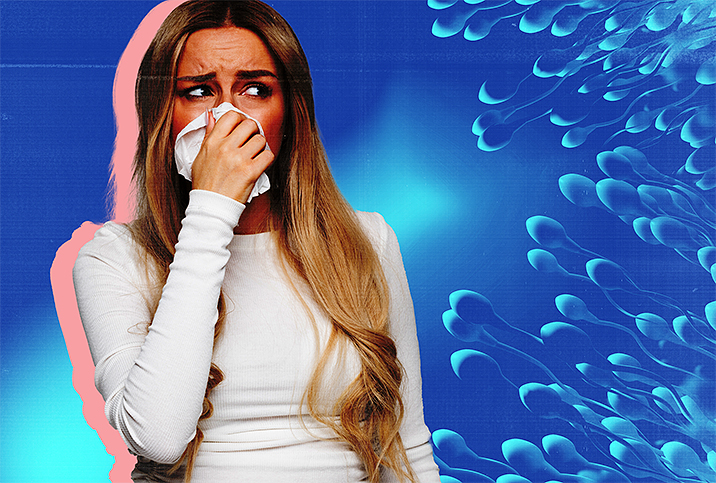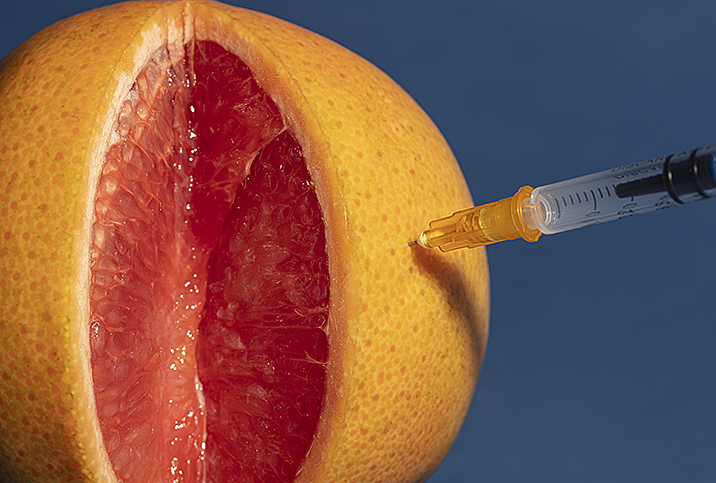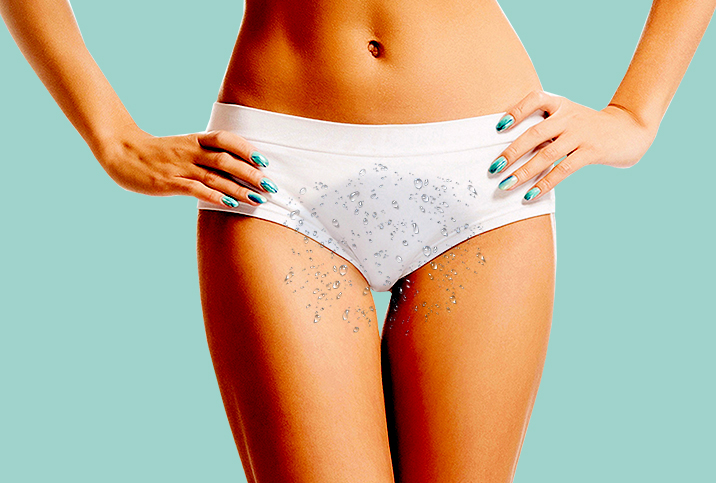Why Does My Vagina Burn After Sex?

Sex should be a pleasurable experience for both parties during and after the act. A session with your partner should leave you feeling satisfied, with postcoital endorphins kicking in as you both wind down.
But what happens when you suddenly begin to feel pain down below?
The sensation might be anything from a soft ache to intense burning. Either way, something isn't right. Pain and/or vaginal burning after sex is distressing, especially if it's persistent or recurrent.
This experience can feel isolating or embarrassing, but painful intercourse is more common than we think. "Depending on the age group, around 40 percent of women experience discomfort with sex," stated Maria Sophocles, M.D., FACOG, a board-certified OB-GYN and medical director of Women's Healthcare of Princeton.
Causes of vaginal burning after sex
Dyspareunia (painful intercourse before, during or after) can happen for a variety of physical or psychological reasons, including friction or dryness, infection, vaginismus, allergies and overactivity of the pelvic floor muscles.
Friction or dryness
Sometimes rough sex can cause friction that leads to pain and irritation. However, friction can also result from a lack of arousal or dryness, which can occur for a variety of reasons, including:
- Not enough time for adequate arousal during foreplay.
- Fluctuating hormones. "Birth control, breastfeeding, pregnancy, postpartum, perimenopause, menopause and even chronic mental stress can affect our production of estrogen," Betsy Greenleaf, D.O., FACOG, explained. As a result, "vaginal tissue begins to thin out from lack of estrogen [and] loses its resiliency and elasticity. This creates not only pain after, but during sex."
- Dehydration, which can affect blood flow and vaginal pH.
- Medical conditions, such as heart disease or an autoimmune disorder.
- Medications, including antidepressants, high blood pressure medicine and antihistamines.
Infection
UTIs, bacterial and yeast infections are common culprits of vaginal pain with sex. "Shifts in bacteria and yeast due to stress, antibiotic usage, soaps, diabetes [or] hormonal changes can lead to low levels of inflammation and even vaginal infection," Greenleaf said. "Sometimes an early sign of an imbalance can be discomfort in the vaginal area, especially with sexual activity."
STIs are another reason that pain might occur after you finish having sex. "STDs can cause vaginal itching, irritation and burning sensations. They will likely also have other obvious symptoms, such as abnormal discharge, itchy or sore patches, and pain whilst peeing," stated Megan Harrison, LMFT, a relationship therapist in San Diego.
Vaginismus
Vaginismus is a condition that causes pain during sex and is estimated to affect 5 percent to 17 percent of women. Though it's considered one of the more common sexual dysfunctions, the causes of vaginismus remain unknown. However, there are several treatments available, so if chronic pain during sex is something you experience, scheduling an appointment to discuss this condition with your doctor is a must.
Allergies
With an allergic reaction, you may not feel it immediately after sex, but in the coming hours or days, you will come to experience irritation, redness, swelling or burning sensations in or around your vagina. Allergic reactions can be triggered by several things, including sperm, lube, condoms and grooming products.
"Irritation or allergy caused by spermicides, latex condoms, lubricants or products such as soap and shampoo can all cause burning sensations. Immediately stop using any products that cause irritation," Harrison advised.
Pelvic floor muscles
Pelvic floor muscle overactivity is a rarer cause of pain, and so is sometimes overlooked. Sex can cause muscle spasms, since "the muscles that line the pelvic floor swing around the vagina and rectum. [Therefore, it] can be felt anywhere in the pelvic floor, vagina or anal areas," Greenleaf explained.
This is why cramps and pain can follow sex. Pelvic problems can be a complicated issue because it encompasses other regions of the body, so speaking with a professional is essential for diagnosis.
Treatments for vaginal burning after sex
If you're experiencing pain or vaginal burning after sex, it's important to schedule an appointment with your doctor. Sophocles advises if your symptoms are significant enough to affect sexual pleasure, then there is cause for concern.
Your doctor will run tests to help determine a treatment plan for you. For UTIs, STIs and other vaginal infections, your doctor may prescribe antibiotics. If there's a pelvic floor issue or you're diagnosed with vaginismus, you might have to undergo physical therapy to help relax your muscles and reduce symptoms.
In addition to seeing a medical professional, some at-home remedies you can try to alleviate postcoital pain or discomfort include:
- Allow more time to focus on foreplay.
- Choose the right lubricant. "Lubricants should be paraben-, glycerin-, petroleum- and fragrance-free, pH-balanced, come with low osmolality, and should not cause burning or discomfort," advised Sara Reardon, P.T., DPT, owner and founder of The Vagina Whisperer. "But first and foremost, anything that glitters, sparkles, tingles or smells should not go [in] your vagina!"
- Use ice packs or warm baths to help with swelling and pain.
- Eat fermented foods or take probiotics to support your vaginal microbiome.
- Stay hydrated.
- Perform Kegels to strengthen your pelvic floor.
- Avoid soaps and detergents that will cause or worsen irritation.
Occasional soreness after sex is common and isn't cause for concern, explained Greenleaf.
"However, if the pain is consistently occurring after sexual encounters or not going away," she advised, "then this is the time to follow up with a healthcare provider or pelvic health expert."


















